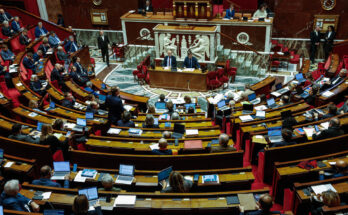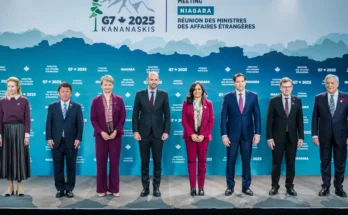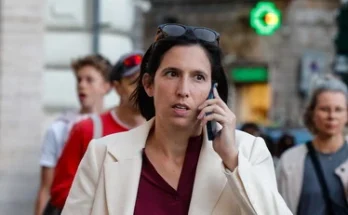The jury in the trial against aircraft manufacturer Boeing, which has been ongoing since November 3 before a federal civil court in Chicago (Illinois), on Wednesday awarded compensation of $28.45 million (24 million euros) to the widower of the victim of the Ethiopian Airlines 737 MAX 8 crash in March 2019.
“We are satisfied with this verdict. We came here to hold a jury trial and it is completely acceptable,” said Soumya Bhattacharya, Shikha Garg’s widower, after the verdict was announced. This was the first civilian test of an American aircraft manufacturer after this crash and, in October 2018, of a 737 MAX 8 aircraft from the Indonesian company Lion Air.
The group admitted in 2019 that anti-stall software contributed to the crashes, which caused a total of 346 deaths. Only the case of beneficiary Shikha Garg, a resident of New Delhi, was ultimately heard by a jury of five women and three men, as the second scheduled complaint had to be agreed on the evening of the second day of the trial.
The jury decided, after only about two hours of deliberations, to award a total of $28.45 million to Mr. Bhattacharya, who attended the entire trial. His lawyer, Shanin Specter, had asked as of Wednesday morning during his plea for between 80 and 230 million dollars. Meanwhile, Dan Webb – Boeing’s top lawyer – has offered 11.95 million.
From his foreword at the opening of the trial, the latter indicated that the aircraft manufacturer “agrees (…) that Boeing should pay significant compensation” but “we disagree on the amount”.
On Wednesday, in his appeal, he expressed Boeing’s “remorse” towards the victims and apologized to Shikha Garg’s widower. “We are deeply sorry for everyone who lost loved ones” in the two crashes, a manufacturer spokesman reacted after the verdict.
“While we have resolved most of the complaints through settlements, families also have the right to take their complaints to court for compensation, and we respect that,” he added.
On March 10, 2019, a Boeing 737 MAX 8 flying Ethiopian Airlines flight ET302 from Addis Ababa to Nairobi crashed southeast of the Ethiopian capital six minutes after takeoff, killing all 157 people on board, from 35 countries. Relatives of 155 victims filed lawsuits against Boeing between April 2019 and March 2021 for wrongful death and negligence, among other things.
“Several billion dollars” were paid after the agreement
At the start of the trial, there were eleven complaints that were still open. Three additional cases have been the subject of out-of-court settlements and, now, one more case with a favorable ruling. Aged 32 and married three months before the accident to her partner of six years, Shikha Garg was a consultant for a UN development program.
Like many other victims, he was due to attend the United Nations Environment Assembly (UNEA) in Nairobi, and was preparing for a doctorate devoted to renewable energy. The couple met through their work for the UN. Mr. Bhattacharya was supposed to be on that fateful trip but it was canceled at the last moment, citing professional reasons.
“It’s one of my biggest regrets, not being able to be with him,” she testified at the trial, noting that they wanted to have children. During a preparatory hearing in late October, her lawyer indicated that Shikha Garg was in the early stages of pregnancy. But for procedural reasons, the jury could not hear it.
Several dozen civil complaints were also filed in the United States following the Lion Air crash. Only one is still open. The plane manufacturer said it had paid “several billion dollars” to beneficiaries, in addition to the amount allocated in federal criminal proceedings in Texas.
In light of the two accidents, the judge ordered on November 6 that the charges be dropped, granting the U.S. Department of Justice’s request. The agreement between Boeing and the ministry, announced in May, provides for payments of $1.1 billion, including an additional $444.5 million for the family’s compensation fund.



